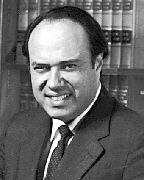In this article, I want to discuss two matters. First, I want to review the extent to which obligations imposed upon a developer under the Massachusetts Condominium Act (Chapter 183A) are transferred to a lender which has taken the condominium development as security for its debt. Second, I want to compare the way the Uniform Condominium Act (UCA) handles this issue. In doing this, I want to demonstrate that the UCA handles the issue of lender liability in a far better way than Chapter 183A.
Chapter 183A does not cover lender liability in an acceptable manner. Lender liability in the event of a default by a developer is covered only in Section 22, which states:
"In the event of a foreclosure upon a condominium development, the lender taking over the project shall succeed to any obligations the developer has with the unit owners and to the tenants, except that the developers shall remain liable for any misrepresentations already made and for warranties on work prior to the transfer."
Our courts have held that Section 22 applies to deeds in lieu of foreclosure as well as to foreclosures. This would make the lender liable to finish roads and amenities, such as a clubhouse that the developer was obligated to complete.
Our courts have stated that Section 22 is a consumer protection statute. Maloney v. Boston Five Cents Savings Bank, 422 Mass. 431 (1996). A sympathetic court in the future could use this to unfairly burden lenders who exercise any dominion and control over a project, no matter how de minimis.
Section 22 leaves many questions unanswered. For example, it is not clear whether Section 22 applies to all situations where a lender becomes a de facto developer by exercising dominion and control over the project.
The UCA, which has been adopted in many states but not in Massachusetts, handles lender liability in the condominium setting in a much better manner. Section 3-104 of the UCA strikes a balance between the need to protect unit owners and the equally important need to protect lenders. Unit owners and lenders are both innocent parties when a developer runs into financial difficulties and is unable to finish the project and pay the lender in full. [Carol Jane Brown, Special Declarant Rights and Obligations Following Mortgage Foreclosure on Condominium Developments, 25 Wm. & Mary L. Rev. 463 (1983).] Section 3-104 relieves a lender, who succeeds to the rights of the developer (e.g., pursuant to a deed in lieu of foreclosure) and holds the property only to transfer the property to another developer, from all obligations and liabilities imposed by the UCA upon a developer.
Clearly, the UCA handles lender liability in a far better manner than the Massachusetts Condominium Act. It is time to replace Chapter 183A, the Massachusetts Condominium Act, with the Uniform Condominium Act.
Saul Feldman is a real estate attorney with Feldman & Feldman, P.C., Boston.
Tags:









